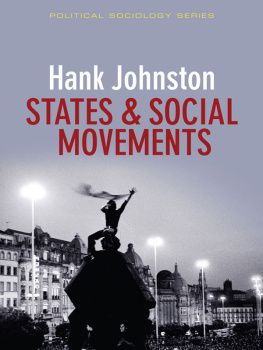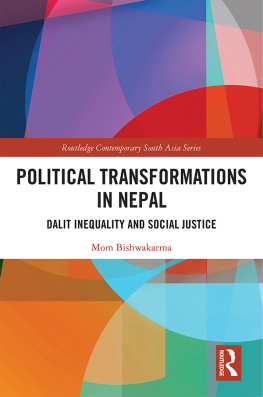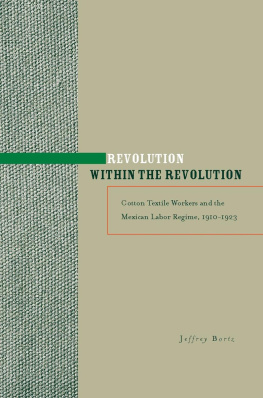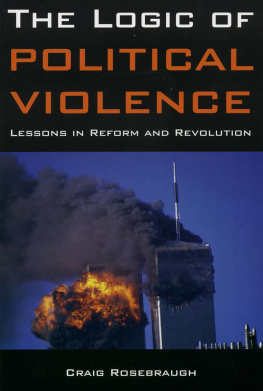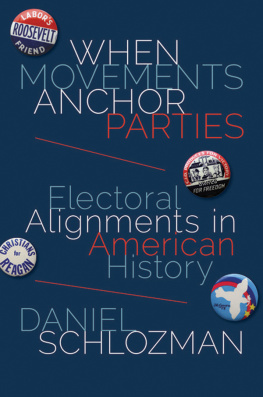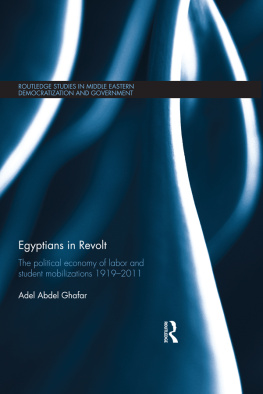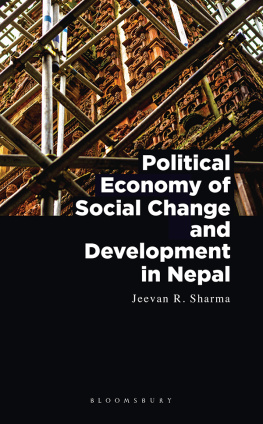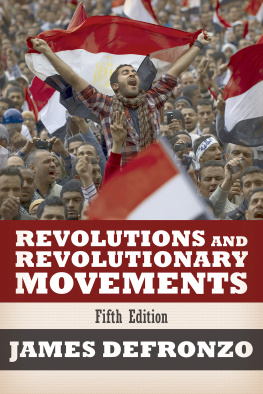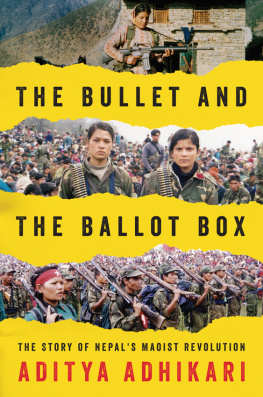THE PARTIAL REVOLUTION
DISLOCATIONS
General Editors: August Carbonella, Memorial University of Newfoundland, Don Kalb, University of Utrecht & Central European University, Linda Green, University of Arizona
The immense dislocations and suffering caused by neoliberal globalization, the retreat of the welfare state in the last decades of the twentieth century, and the heightened military imperialism at the turn of the twenty-first century have raised urgent questions about the temporal and spatial dimensions of power. Through stimulating critical perspectives and new and cross-disciplinary frameworks, which reflect recent innovations in the social and human sciences, this series provides a forum for politically engaged, ethnographically informed, and theoretically incisive responses.
For a full volume listing, please see back matter
First published in 2018 by
Berghahn Books
www.berghahnbooks.com
2018 Michael Hoffmann
All rights reserved.
Except for the quotation of short passages for the purposes of criticism and review, no part of this book may be reproduced in any form or by any means, electronic or mechanical, including photocopying, recording, or any information storage and retrieval system now known or to be invented, without written permission of the publisher.
Library of Congress Cataloging-in-Publication Data
A C.I.P. cataloging record is available from the Library of Congress
British Library Cataloguing in Publication Data
A catalogue record for this book is available from the British Library
ISBN 978-1-78533-780-2 hardback
ISBN 978-1-78533-781-9 ebook
ACKNOWLEDGEMENTS
This book has taken a long time to write and I owe a lot of people a great deal of gratitude. My greatest debt is to the people of Tikapur and its surrounding villages, who welcomed me into their homes, invited me for a meal and sometimes even hosted me for a few nights, often at great personal expense. Without their help and patience in answering my questions, this book project would not have been possible. I sincerely hope that if anyone from Tikapur and its surrounding villages in Kailali district in far-western Nepal ever reads this book in the future, he or she will feel that I have done justice to the complexities of both the impact of the Maoist revolution and the transformation of bonded labour to new forms of labour relations in their area. I should also thank all those respected state bureaucrats, members of various political parties, labour unionists, labour contractors and local industrialists who received me and hosted me.
To respect my informants privacy, settlement names have been changed throughout the book and all personal names have been turned into pseudonyms apart from those of well-known public figures. I have called the ex-bonded labourers settlement where I spent most of my time Ramnagar, which is literally Rams village in English invoking a Hindu deity that is commonly associated with strength and braveness. This was done as many of the formerly bonded villages that I got to know over the years carry the names of powerful Hindu deities to indicate to outsiders the unity, strength and braveness of their communities.
I am also deeply indebted to the various institutions that funded me during various stages of the research and writing of this book. Throughout my Ph.D. studies at the London School of Economics and Political Sciences I received a travel fund from the University of London and departmental grants from the Department of Anthropology to support my field research. I also received an Alfred Gell Memorial Scholarship from the Department of Anthropology and the Bagri Fellowship at the Asia Research Centre of the London School of Economics and Political Sciences. During my postdoctoral work at the Max Planck Institute for Social Anthropology, the Department of Social Anthropology and the Global South Studies Centre at the University of Cologne, I was generously funded, allowing me to proceed with the writing of this book. For all this financial and institutional support I am very grateful.
I would additionally like to thank a number of people for their generous support in Nepal, the UK and Germany. I am particularly indebted to my Ph.D. supervisors Prof. Jonathan Parry and Prof. Laura Bear from the London School of Economics and Political Sciences. Both have guided me through the process of preparing and writing a doctoral thesis with great skill. Their questions and comments on my work were always sharp and insightful. I would also like to thank Alpa Shah and Geert de Neve for reading and commenting on my work about western Nepal. Likewise, the comments of the anonymous reviewers at Berghahn Books helped me clarify some of the arguments presented in this book.
Throughout the early stages of my work, I also benefited from the stimulating and fruitful discussions at the Department of Anthropology at the London School of Economics and Political Sciences weekly writing up class and the biweekly seminar series on Ethnographic Perspectives on Work and Labour. The many comments and suggestions offered on various chapters of this book have helped to sharpen its analytical focus and to enrich the writing process. For this I thank the seminar participants: Maxim Bolt, Thomas Boylston, Kimberley Chong, Alana Cant, Katherine Fueberg-Moe, Aude Michelet, Luca Pesc, Denis Regnier, Dave Robinson and Miranda Sheild Johanson.
As I went on to postdoctoral studies I had the privilege to work in the research group Industry and Inequality in Eurasia at the Max Planck Institute for Social Anthropology. Here I met academic colleagues with whom I could engage in insightful discussions about my work on Kailali district in far-western Nepal and I benefited from frequent exchanges on our common interests in labour issues. Amongst others I would like to thank particularly Catherine Alexander, Dina Makram Eibeid, Chris Hann, Eva Keskla, Dimitra Kofti, Andrew Sanchez, Christian Strmpel and Tommaso Trevisani for their comments and their reading of some of the work that this book is based upon.
While there are more friends and colleagues in Nepal than can be named here, I would like to express my particular gratitude to Mr Uttam Adhikari, who provided much hospitality, humour and intellectual support while staying in Tikapur. A debt of gratitude is also owed to Mr Pushba Chaudhary for his extremely valuable help and enthusiasm while working as a research assistant throughout the main portion of fieldwork that this book is based upon. I also extend my thanks to Mr Kucchat Chaudhary, who worked with me as a research assistant on later field visits. Both of them have always been generous and unselfish collaborators and I always had very stimulating and insightful discussions with them throughout my time in Nepal.
I am also deeply indebted for the many inspiring and stimulating discussions with friends both during and after my fieldwork in Nepal, and I owe them much for their hospitality and friendship: Nikhil Archaya, Eirini Avramopoulou, Thomas Boylston, Irene Calis, Giovanni Dascola, Ankur Datta, Tommaso Dolcetta, Cesar Estrella, Kiran Hacker, Safik Iraki, Leonidas Karakatsanis, Tobias Kecht, Nicolas Martin, Durlap Pun, Rocco Santangelo, George St. Claire, Hans Steinmller and Thomas Rodgers. Finally, I would like to thank Kjersten Lato for her affectionate support and encouragement, and for her great interest into my work.


